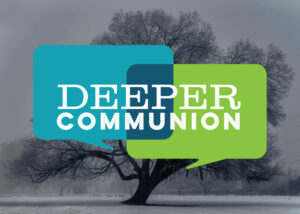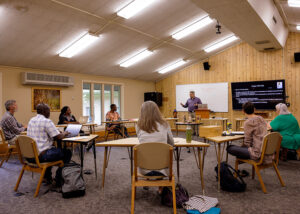It’s Sunday night, I’m in a coffee shop, and I’m soaking wet. Thirty minutes earlier I was at home reading about the Doctrine of Discovery and found the content so painful that I headed out to grab a decaf. Then the rain hit. Thank God. The water dripping from my hair hides the tears running down my cheeks.
I wipe my eyes and fumble through blurry pages detailing the devious ways the Christian church, Christian nations, explorers, missionaries and lawyers “discovered” native lands and claimed possession in Jesus’ name. It’s hard to believe. Popes in the 15th century proclaimed that Christians could plunder the lands of infidels. European peoples rejoiced—and they’ve riffed on that belief ever since, tweaking it to suit their needs. And their damned wants.
My chest muscles tighten. I take a sip of coffee, walk to the bathroom muttering curses beneath my breath.
The Doctrine of Discovery is demonic. It proclaims that we Christians are the fully human, truly religious chosen, the civilized who bear rights and sovereignty. At the same time, it denounces “those Indians” as less than human, bereft of God, primitive and in need of paternalistic white rule.
Last year, the Truth and Reconciliation Commission summoned churches to repudiate the Doctrine of Discovery. At Assembly 2016 in Saskatoon, delegates voted in favour of a resolution to do just that. What church with any conscience would do otherwise?
While Canada no longer bases its sovereignty over indigenous lands through appeals to Christian superiority, it still clutches that land by claiming rights of discovery. It’s devilish logic and it needs to be addressed. By the church. Even our church.
Unfortunately, belief in Christian superiority still lurks in the church. For centuries, Christians have been taught to believe that our religion is better, more civilized or advanced than our neighbours’. How can we reconcile such beliefs with the witness of Job? The most faithful person in the Hebrew Bible was a religious outsider. Or what of Christ’s call to do unto others as we would have them do unto us? Can we celebrate or share our faith with integrity if we disrespect the spiritual paths of others?
We have an opportunity to change. Now that we’ve repudiated the Doctrine of Discovery, we can find ways to live out that commitment. One way to do this is to explore the Truth and Reconciliation Commission’s Call to Action No. 60: Partner with indigenous communities to learn about and respect indigenous spirituality. It won’t be easy. It could be the most difficult journey our church has yet taken. Yet the Spirit of Jesus can give us the humility to venture forth into such new territories in a way that will honour host peoples.
As I finish my coffee, I peer through the shop window. Three folks are laughing, smoking and begging for money. All indigenous. They’re battle-scarred. And I’m reminded how this Doctrine of Discovery conversation matters to real flesh and blood.
Steve Heinrichs is Mennonite Church Canada’s director of indigenous relations.
For more reflection on restorative solidarity with indigenous neighbours, see “Facing history with courage.”







Leave a Reply
You must be logged in to post a comment.